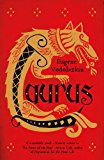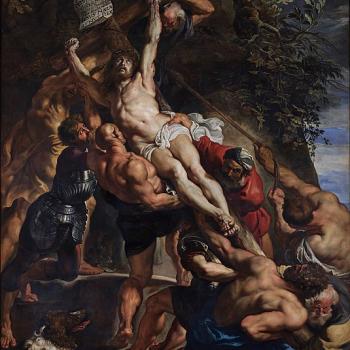More after the jump.
RD: I think one of the most important moments in Laurus occurs when an elder tells Arseny, who is on pilgrimage, to consider the meaning of his travels. The elder advises: “I am not saying wandering is useless: there is a point to it. Do not become like your beloved Alexander [the Great], who had a journey but no goal. And do not be enamored of excessive horizontal motion.” What does this say to the modern reader?
That it is time to think about the destination, and not about the journey. If the way leads nowhere, it is meaningless. During the perestroika period, we had a great film, Repentance, by the Georgian director Tengiz Abuladze . It’s a movie about the destruction wrought by the Soviet past. The last scene of the film shows a woman baking a cake at the window. An old woman passing on the street stops and asks if this way leads to the church. The woman in the house says no, this road does not lead to the church. And the old woman replies, “What good is a road if it doesn’t lead to a church?”
So a road as such is nothing. It is really the endless way of Alexander the Great, whose great conquests were aimless. I thought about mankind as a little curious beetle that I once saw on the big road from Berlin to Munich. This beetle was marching along the highway, and it seemed to him that he knows everything about this way. But if he would ask the main questions, “Where does this road begin, and where does it go?”, he can’t answer. He knew neither what is Berlin, nor Munich. This is how we are today.
Technical and scientific revelation brought us the belief that all questions are possible to solve, but that is a great illusion. Technology has not solved the problem of death, and it will never solve this problem . The revelation that mankind saw conjured the illusion that everything is clear and known to us. Medieval people, 100 percent of them believed in God – were they really so stupid in comparison to us? Was the difference between their knowledge and our knowledge as different as we think? It was not so! I’m sure that in a certain sense, our knowledge will be a kind of mythology for future generations. I reflected this mythology with humor in Laurus, but this humor was not against medieval people. Maybe it was self-irony.
RD: Timelessness is one of the main ideas of Laurus, which leaps suddenly and unexpectedly from the medieval present, to our own time. What does this mean?
EV: Time doesn’t exist. Of course time exists if we’re speaking in everyday terms, but if we think from the perspective of eternity, time doesn’t exist, because it has its end point. For medieval people, God was the most important thing about life, and the second most important thing was Time. On the one hand, medieval people lived rather short lives, but on the other hand, life was very, very long, because they lived with their minds in eternity. Every day is an eternity in the church, and all that surrounded these people. Eternity made time very long, and very interesting.
If you would think about the first patriarchs, Adam, Methuselah, and others, they had an incredible long life. Adam lived 930 years, Methuselah lived, as far as I remember, 962 years. Because they had eternity in their memories, eternity could not disappear at once. This eternity disappeared slowly, dissipated in the long life of the patriarchs. Medieval people, by comparison to us, are these patriarchs. Their life was very long because they had as part of daily life this vertical connection, the connection to the divine
[Keep reading. . .]
 Rod Dreher has interviewed Eugene Vodolazkin, the author of Laurus, which we posted about yesterday. Read what he has to say. Sample:
Rod Dreher has interviewed Eugene Vodolazkin, the author of Laurus, which we posted about yesterday. Read what he has to say. Sample:
















